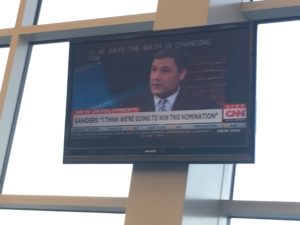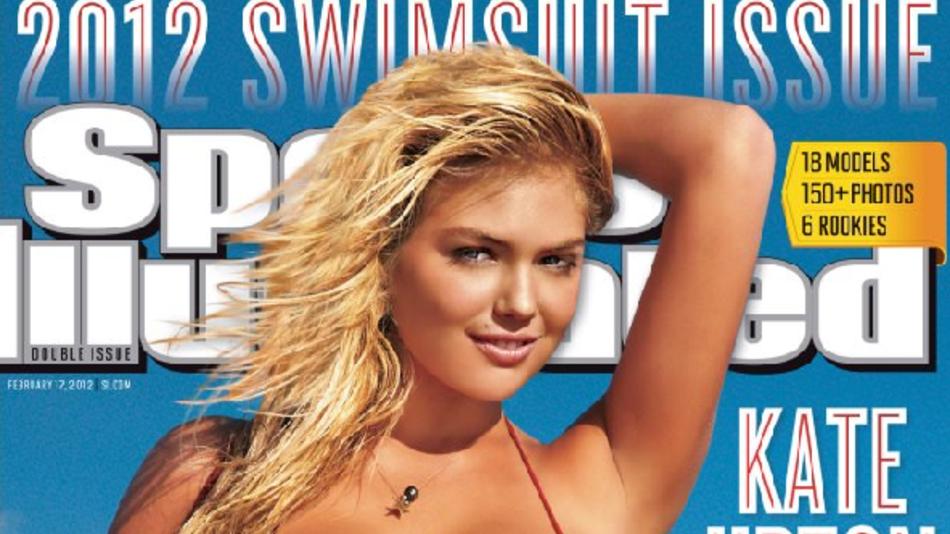WEST LONG BRANCH, N.J.–What began with 23 presidential hopefuls has dwindled down to the final five: Bernie Sanders, Hilary Clinton, John Kasich, Ted Cruz, and Donald Trump.
Regardless of your political affiliation or candidate preference, there is no denying that Trump and Clinton seem to make up the majority of the news coverage. Of course, the idea of a female president or Capital Hill outsider is exciting, but what about the other guys? The media shows great signs of bias toward certain candidates, and this has the potential to harm the campaigns of those being ignored.
Studies back this observation up, too. According to a media analysis of the presidential candidates done by Decision Data, there is strong evidence of media bias. One candidate who is not getting his fair share of coverage is Vermont Senator Bernie Sanders.
“Sanders is being ignored by the mainstream media to a shocking degree,” the analysis pointed out. “If covered at the average rate we’d have seen about 61,500 more stories including Sanders in the last six months: 91,094 mentions instead of 29,525.”
This raises a question about how bias affects performance in caucuses and primaries. Winning 69 percent of the Democrats Abroad global primary resulted in Sanders being awarded nine of the 13 delegates up for grabs. It is fair to speculate that the lack of daily exposure to biased coverage influenced the final vote count.

Take CNN for example. It is considered by many a neutral news source. However, CNN is actually a subsidiary of Time Warner, which just so happens to be Clinton’s seventh biggest financial supporter. In Decision Data’s conclusion, there were 58,212 more mentions of Clinton than Sanders in the mainstream media over the span of an eight-month period. In fact, when Sanders is mentioned on CNN, headlines and conversation seem to minimize his campaign’s success before swiftly moving the agenda back to Clinton.
The media has always played a large roll in politics. The first televised presidential debate, between John F. Kennedy and Richard Nixon, aired Sept. 26, 1960. The former candidate had the appeal of a Hollywood actor with a silver tongue, while the latter donned a five o’clock shadow and emitted an awkward presence in front of the cameras. It is not difficult to guess which man was awarded the keys to the White House two months later.
The Kennedy/Nixon debate solidified television’s power in politics. Over the course of the next 65 years, that power has only increased. However, social media has become the new contender. Facebook is one of the most used platforms with a vast audience, from high school students to seemingly tech-illiterate grandparents. In fact, high youth voter turnout during primaries can be due to the power of social media.
Monmouth junior Erin Comiskey speculated how social media might have derailed the Clinton campaign’s expectation of an effortless journey to the Democratic nomination.
“Bernie Sanders was an underdog in the general election even before he announced he was running for President,” said Comiskey. “Hillary Clinton is a household name, an experienced candidate who was assumed to be named, without a doubt, the Democratic Nominee.”
“However, with the help of social media–Facebook posts and commoner fact-checkers, Clinton has been scrutinized for her withering on issues,” she continued. “Clinton has historically contradicted herself on issues such as gay marriage and black lives matter. The news media has given Clinton the majority of coverage, but in terms of social media, Sanders has received a lot of attention.”
The same can be said for the other side of the aisle, among the Republican nominees.
There’s no question that controversial front-runner Donald Trump makes up the majority of the media’s coverage. The Decision Data study never even analyzed the statistics of John Kasich. The study was done in January of this year, when there were still an abundance of Republican nominees, but what about in real time? How often is the mainstream news and media talking about the Ohio governor? As the race continues, it is unlikely that the bias will change.




